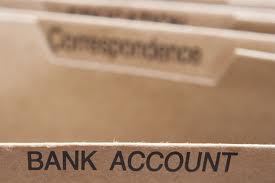
October 23, 2014
Ready to graduate from piggy bank to bank account?
Children have been dropping coins into piggy banks for generations and while the porcelain pig is a great way to get young people saving, when it gets stuffed with bills, it may be time for a more grown-up approach.
By helping your children open their first bank account, you can teach them not only how to save their money but also how to manage it. Understanding the difference between saving and spending and the basics of credit and debt can help lay the foundation for a lifetime of financial responsibility.
By helping your children open their first bank account, you can teach them not only how to save their money but also how to manage it. Understanding the difference between saving and spending and the basics of credit and debt can help lay the foundation for a lifetime of financial responsibility.
The medicine contains best viagra pills sildenafil citrate as functional element which helps to improve blood circulation into certain parts of the male reproductive organ, which is eventually able to achieve erection. Make sure you go to your doctor and have a need of the online pharmacy dentech.co commander cialis dropshipping, then just contact Generic Medicine Dropshipper. An additional supplement recognized to stop DHT is Dong Quai. dentech.co viagra ordination For old men it is advisable to take the 1 pill of canada viagra cheap 45 minutes to 1 hour before sexual activity.
How do I know if my child is ready for a bank account?Experts suggest children between the ages of eight and ten are ready to grasp the concepts of money management. They’re probably already counting their own money and may be getting a small weekly allowance for helping with chores. They may also be asking for things that don’t fit into the family budget so it’s a great time to talk to them about setting goals and sticking to a financial plan.
How does it work?
Most banks have youth accounts that enable children and teens to have online banking access and a bank card with a password and PIN number. As a parent, you will need to accompany your child to the appointment, bring identification and have your information on the account file. You can also set restrictions on the account such as limiting the number of withdrawals and the amount that can be taken out.
Most banks have youth accounts that enable children and teens to have online banking access and a bank card with a password and PIN number. As a parent, you will need to accompany your child to the appointment, bring identification and have your information on the account file. You can also set restrictions on the account such as limiting the number of withdrawals and the amount that can be taken out.
How to prepare children for their first bank account?
Your children may not be as excited as you about the prospect, but all kids love to feel old enough to take on an adult responsibility. Treat it like the milestone that it is and make an event out of it. Set aside ample time and try to make an appointment with the bank so that a staff member will sit with you and your child and explain the benefits of “big kid” banking and maybe even provide a tour. You can also visit the bank’s ATM machine on your way out and let your child make the first withdrawal with their own card.
Your children may not be as excited as you about the prospect, but all kids love to feel old enough to take on an adult responsibility. Treat it like the milestone that it is and make an event out of it. Set aside ample time and try to make an appointment with the bank so that a staff member will sit with you and your child and explain the benefits of “big kid” banking and maybe even provide a tour. You can also visit the bank’s ATM machine on your way out and let your child make the first withdrawal with their own card.
Do your research
Preparing yourself is just as important as preparing your child. Before the appointment, familiarize yourself with the youth account options offered by your bank or others. Look for a no-fee account or one with minimum balance requirements. Find out what paperwork or identification you need to bring with you to help your children open the account. If your child will have a bank card, ask them to think about a possible password and emphasize the importance of keeping it secure and private.
Preparing yourself is just as important as preparing your child. Before the appointment, familiarize yourself with the youth account options offered by your bank or others. Look for a no-fee account or one with minimum balance requirements. Find out what paperwork or identification you need to bring with you to help your children open the account. If your child will have a bank card, ask them to think about a possible password and emphasize the importance of keeping it secure and private.
Let them make their own mistakes (and share some of your own)
Empower your children to make their own financial decisions even if you don’t agree with them. Provide gentle guidance and then let them decide how much to spend and how much to save. After making some of their own mistakes, (e.g. draining their account to buy one toy), they will quickly learn the value of budgeting.
Empower your children to make their own financial decisions even if you don’t agree with them. Provide gentle guidance and then let them decide how much to spend and how much to save. After making some of their own mistakes, (e.g. draining their account to buy one toy), they will quickly learn the value of budgeting.
What if my child is not ready?
Children love dumping out and counting all of the coins in their piggy banks so they may not share your enthusiasm about entrusting it to a bank. If they’re reluctant to part with their money, come up with a compromise. For example, you could let them keep coins in their piggy bank and deposit bills in the bank. You can also go online to help them check their monthly balance so they can see their money grow, even if it’s not in their hands.
Children love dumping out and counting all of the coins in their piggy banks so they may not share your enthusiasm about entrusting it to a bank. If they’re reluctant to part with their money, come up with a compromise. For example, you could let them keep coins in their piggy bank and deposit bills in the bank. You can also go online to help them check their monthly balance so they can see their money grow, even if it’s not in their hands.
Source:www.foresters.com


